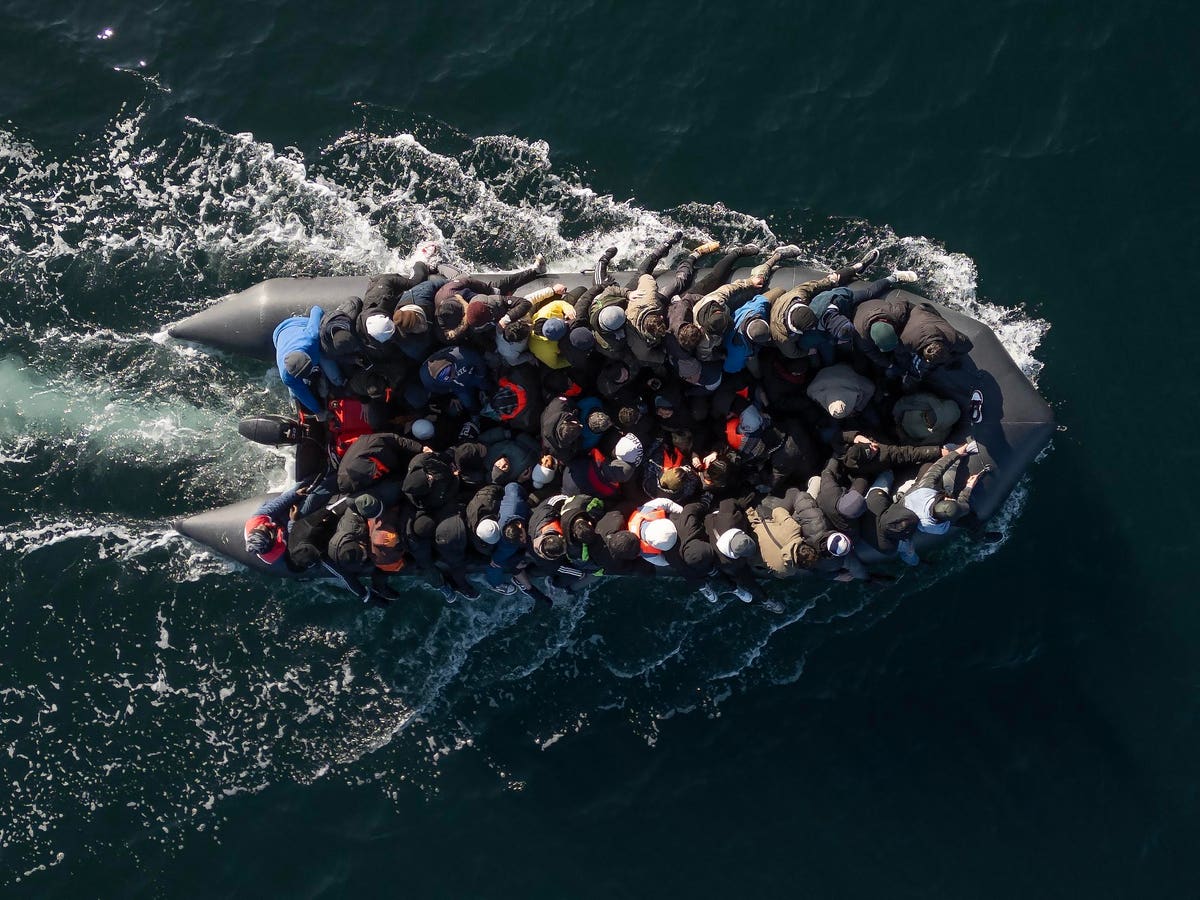An inflatable dinghy carrying around 65 migrants crosses the English Channel on March 06, 2024 in … More the English Channel. (Photo by Dan Kitwood/Getty Images)
Getty Images
The U.K. government under Prime Minister Keir Starmer is reportedly looking into the possibility of using countries in the Balkans as ‘return hubs’ to send rejected asylum seekers, according to government ministers quoted in a prominent British newspaper. Such plans, if true, are very much in keeping with the trend among policymakers in Europe to pursue such ‘offshoring’ schemes. They do however stand in stark contrast with Prime Minster Starmer’s previous condemnation of the very similar Rwanda scheme of the previous Conservative government.
According to the Times newspaper, the Labour party is exploring options to sign agreements with countries in the Balkans to send rejected asylum seekers there. This differs from the previous Rwanda scheme insofar as the latter involved people (in theory) having their applications for asylum processed abroad, while the former will be used (in theory) only for people who have already been rejected.
Despite that distinction, the comparison has been noticed, and clips of Keir Starmer criticizing the former plan have been doing the rounds on social media. Such an apparent u-turn on the idea of ‘offshoring’ Britain’s refugee responsibilities does not come as a complete surprise, however, as Starmer has previously praised Italian Prime Minister Giorgia Meloni for the very similar Albania scheme.
The general idea is very much in vogue in Europe more broadly, with individual member states of the European Union having successfully lobbied the European Commission – the executive arm of the EU – to open up the legal possibility of ‘return hubs’ wherein people can be deported to countries they did not come from, something that was previously considered anathema.
The stated justifications for such schemes broadly break down to the idea that neither Europe nor the United Kingdom are able to handle the amount of people who are attempting to cross irregularly into their territory in order to claim asylum. Given the various human rights conventions the EU and U.K. are bound to, it is hard to send people back directly to peoples’ countries of origin, as in many cases they will face danger, and often countries will not accept people sent back by force.
Governments and policymakers in favor of such ‘offshoring’ schemes argue in essence that a solution needs to be found that ensures an orderly process on the one hand, and on the other acts as a deterrent to prospective future irregular migrants, dissuading them from trying the journey themselves.
Critics of such schemes argue that they in essence ignore the realities of the way irregular migration and asylum work. Instead of arbitrarily deporting people to countries they have no connection to, it is argued, governments would do better to provide safe and legal routes for people to seek shelter in Europe, thereby getting rid of the need to use dangerous and dramatic routes. At the same time, experts have long pointed to the scant evidence for the ‘deterrence’ effect of policies such as these.
The U.K.’s Balkans plan remains hypothetical, but as it stand, at least Albania has ruled out working with countries other than Italy.
